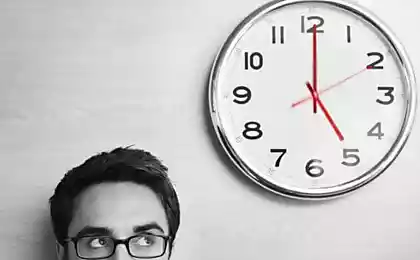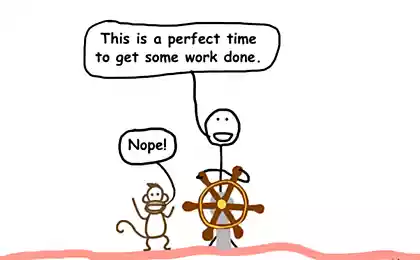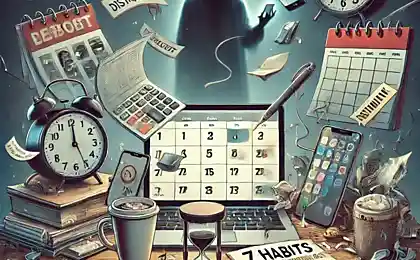142
4 Things to Think About When You Don’t Have Enough
It’s hard to feel like you don’t have time, even though you wanted to do so much. Maybe it's a reason to stop and think about a couple of important things.

Marcus Aurelius once wrote in his reflections that time is a river of vanishing events and rapid flow. Modern man feels this metaphor especially acutely: it seems that the days pass by, and the list of things is only growing. According to a study by the American Psychological Association, 73% of adults regularly experience stress due to lack of time, and 48% believe that their productivity is reduced due to the constant feeling of rush.
The paradox of modern life is that the more we strive to do, the less time we have. It’s not just a subjective sensation — neuroscientists have found that chronic stress from lack of time activates the amygdala, the anxiety center in the brain, leading to impaired cognitive function and reduced ability to concentrate.
The key problem is not that we have little time, but how we perceive and use it. Changing the approach to time management can dramatically transform the quality of life.
1. Rethinking Priorities: The Matrix of Importance vs. the Illusion of Employment
Stephen Covey, in his famous work “Seven Habits of Highly Effective People,” proposed a concept that still remains one of the most effective tools for managing time. The Eisenhower matrix divides all tasks into four quadrants: important and urgent, important but not urgent, urgent but not important, and neither important nor urgent.

A study from Harvard Business School found that most people spend up to 60 percent of their working time in the third quadrant — doing urgent but not important tasks. This creates the illusion of productivity, when a person is constantly busy, but does not move towards their main goals.
Do an audit of your day: write down every 30 minutes what you did, and in the evening distribute these activities in the quadrants of the matrix. The result may surprise you — you may find that you’re not spending time on what’s really important.
Practical steps to rethink priorities
Identify three main goals for the next three months
Set aside time weekly to plan and analyze priorities
Learn to say no to problems in the third and fourth quadrants
Invest more time in the second quadrant – important but not urgent
2. Time perspective: how our brains fool us about time
Philip Zimbardo, a renowned Stanford psychologist, has devoted decades to studying how people perceive time. His research has shown that our subjective perception of time dramatically influences decision-making, stress levels and overall quality of life.
People with a predominantly true hedonistic perception of time live in the moment, but often suffer from an inability to plan. Those who focus on the future achieve great goals, but may miss the joys of today.
MIT neurobiological research shows that our brains use different neural networks to process short-term (seconds, minutes) and long-term (days, months) time intervals. This feature leads to the so-called “planning error” – a systematic underestimation of the time required to complete tasks.
Cognitive distortions of time
30%
underestimating time for habitual tasks
50%
overestimating multitasking productivity
25%
Loss of efficiency when switching tasks
Use the “rule of one and a half”: multiply the expected time of the task by 1.5. This will compensate for the natural tendency to underestimate time and help create more realistic plans.
3. Energy management: time without energy is useless

Tony Schwartz, co-author of Life at Full Power, argues that managing energy is more important than managing time. Time is a limited and irreplaceable resource, but energy can be restored and multiplied.
Studies of circadian rhythms show that our bodies have natural peaks and energy declines throughout the day. Most people have maximum cognitive performance between 9 and 11 a.m., then a drop in the afternoon, and a second, less pronounced peak between 18 and 20 hours.
Four types of energy
Physical energy: regular sleep, proper nutrition, exercise
Emotional energy: Positive emotions, gratitude, communication with loved ones
Mental energy: concentration, lack of multitasking, regular breaks
Spiritual energy: communication with goals and values, meaningfulness of activities
Try the energy mapping technique: For a week, mark your energy level every two hours on a scale of 1 to 10. You will discover your individual biorhythms and be able to plan important tasks for peak periods.
4. The Productivity Paradox: Slowing Down for Acceleration
Carl Honore, in his book Slower, describes a phenomenon that seems counterintuitive: to become more productive, you sometimes have to slow down. This is not a call to laziness, but a science-based approach to optimizing cognitive resources.
Research on neuroplasticity suggests that the brain needs periods of "diffuse attention," a state of relaxed concentration when consciousness wanders freely. It is at these moments that the most important cognitive processes occur: memory consolidation, creative insights, solving complex problems.
Constant employment is not a virtue, but a symptom of poor planning and inability to prioritize. Real productivity is about achieving meaningful results, not creating an illusion of activity.
Consciously slowing strategies
Pomodoro Technique 2.0: After every 25 minutes of concentrated work, take a 5-minute break without gadgets. Just sit and watch your thoughts or look out the window. This activates the brain’s default mode, which is critical for creativity and problem solving.
Meditative practices that used to be considered esoteric are now being actively studied by neuroscientists. Regular meditation increases gray matter density in areas of the brain responsible for attention and emotional regulation. Just 10 minutes of meditation per day can significantly improve your ability to concentrate and reduce stress levels.
Schedule a “time of doing nothing” – at least 15 minutes a day
Practice monotasking: One hour is one task
Set boundaries for checking email and social media
Regularly spend “digital detoxes” – days without gadgets
Conclusion: from chronophagy to chronosophy
The problem of lack of time is not just a question of efficiency, it is a philosophical challenge of modern civilization. We live in an age where speed has become a cult and employment a measure of success. But the real wisdom lies in understanding that quality of time is more important than quantity.
The four principles we’ve covered – conscious prioritization, time perspective, energy management, and productivity paradox – are not just time management techniques. These are the foundations for creating a more meaningful and balanced life.
Remember, the goal is not to do more, but to do the right thing in the right way. Time is not an enemy to be defeated, but a resource to be wisely managed.
Start small: Choose one of the suggested principles and apply it throughout the week. Gradually add the rest. Changes in your perception of time don’t happen instantly, but their long-term effects can transform your entire life.
Glossary of terms
Amygdala
The brain region responsible for processing emotions, especially fear and anxiety. In chronic stress, amygdala hyperactivity can reduce cognitive function.
Circadian rhythms
The body’s biological clock regulates sleep and wakefulness cycles, as well as fluctuations in physical and mental activity during the day.
Diffuse attention
Brain mode, characterized by relaxed concentration, when consciousness wanders freely. The opposite of focused attention.
Planning error
Cognitive bias in which people systematically underestimate the time it takes to complete tasks, even if they have experience performing similar tasks.
Neuroplasticity
The ability of the brain to change its structure and function in response to experience, learning, or injury. The basis for the formation of new skills and habits.
chronophagy
The term for “time wasting” is the inefficient use of time resources, leading to a sense of their scarcity.
Chronosophy
Philosophical understanding of time as a resource, wise attitude to the planning and use of time periods to achieve life goals.























